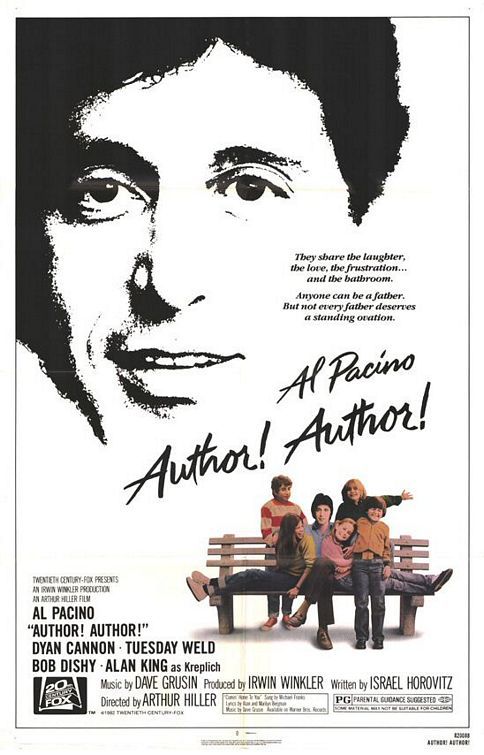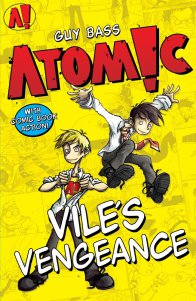
By Richard Winters
My Rating: 4 out of 10
4-Word Review: Playwright has family issues.
Ivan (Al Pacino) is a playwright struggling to get his next creation ‘English with Tears’ financed and produced. While he has managed to attain the necessary funding he still has a second act that everyone feels ‘needs work’, but before he can tackle that his wife Gloria (Tuesday Weld) leaves him for another man (Frederic Kimball). Now he must contend with raising the five kids alone with four of them being hers from a previous relationship.
The screenplay was written by Israel Horovitz and loosely based on his own experiences as a single parent. Horovitz has written many plays, over 70 of them, several have been considered at least in their day as groundbreaking, so this thing seems incredibly contrived by comparison. The scenes dealing with Ivan’s struggles in regards to his play and the politics that ensue in order to get it made are the most interesting aspects of the movie and the story should’ve solely focused on this angle while the home-life stuff proves sterile and better suited for a sitcom.
The kids seem too connected to the adult world around them. Children can certainly be astute at times, but they still dwell in their own little bubbles and this film shows no awareness of that and instead has them saying lines that more likely would’ve been uttered by an adult. Benjamin H. Carlin has a few cute moments as the young Geraldo, but Ari Meyers, who would later go on to star in the TV-show ‘Kate and Allie’ gives the best performance when she breaks down into tears as she describes the hardships of being booted around from one household to the next.
It’s nice seeing Pacino doing light comedy, which is a real change of pace for him, but he’s too intense and does not play off of Weld, who is more emotionally restrained, well at all. The scene where he tries to physically drag her into a taxi cab isn’t funny, but scary instead and most likely would’ve had those who were standing around witnessing it trying to intervene, or calling the cops.
Dyan Cannon is not effective as the kooky actress who stars in his play and then later moves in with him. Had her character’s eccentricities been played up more she might’ve at least been amusing, but the script doesn’t go far enough with this and having her call him up out-of-the-blue and ask to go to bed with him seemed too outrageously forward. There was some dramatic potential when, after she moves in with him and his kids, she is then asked to move out when Weld’s character comes back into the picture. This could’ve opened the door to a lot of dramatic fireworks and given the film a real lift, but instead she just leaves quietly and is essentially forgotten, which then begs the question why even bother introducing her character at all?
The scenes where Ivan frets about his play and the audience reactions to it are the best parts of the film because it shows the inner anxieties of just about any playwright or screenwriter out there, which is why this should’ve been the central point of the movie as it is the only thing that helps the story stand out. By comparison the family life stuff is generic and filled with too much manufactured cutesiness. It also wastes the talents of Alan King who is mildly amusing, at least at the beginning, as the play’s producer as well as the legendary comedy team of Bob Elliot and Ray Goulding who play the part of the play’s financiers.
The film’s title song ‘Coming Home to You’, which plays over the opening credits as well as the closing ones is so overly sugary that it is enough to make you want to turn the movie off before it’s even begun. It got nominated for a Razzie award for worst original song and it should’ve won as there could not be anything that would be worse, but what is even more amusing is that no one gets credited for singing it, which should’ve been a signal to director Arthur Hiller not to feature it in the film because if the song’s own singer is embarrassed by it then who else would like it.
My Rating: 4 out of 10
Released: June 18, 1982
Runtime: 1Hour 50Minutes
Rated PG
Director: Arthur Hiller
Studio: 20th Century Fox
Available: DVD
Share this:




